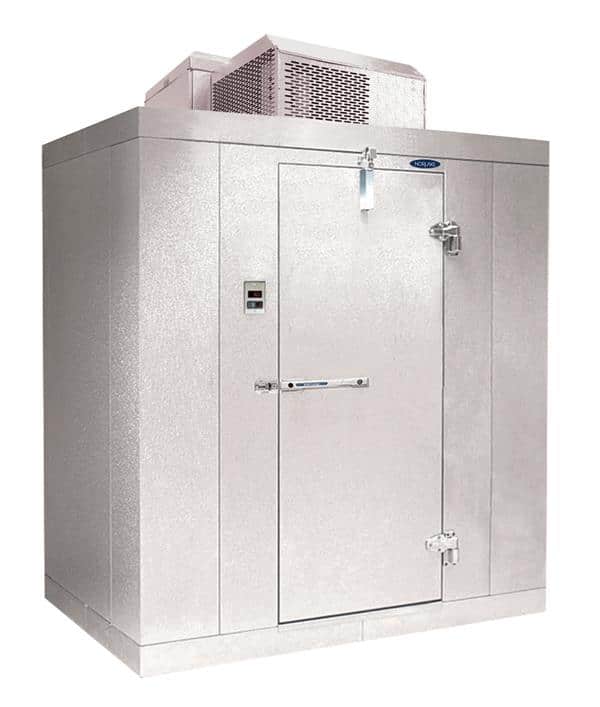Cream cheese is a favorite addition to dozens of different recipes and is even an excellent spread on its own. Whether you enjoy traditional cream cheese or a fun flavored option, it is essential that you know the answer to one vital question: how long does cream cheese last?
While cream cheese isn’t considered a dairy product, according to the U.S. Department of Agriculture (USDA), it is often treated as dairy when it comes to proper storage methods. Before diving into how long cream cheese lasts when stored correctly, it’s important to take a moment to identify what this product is and how it’s made.
What is Cream Cheese?
Cream cheese is well-known as a common addition to the the bagel, a breakfast favorite. According to the USDA, cream cheese is not defined as a dairy product because it lacks the necessary calcium that is found in most dairy products.
To be considered real cream cheese, the final product needs to have a minimum milk fat content of 33%, and the maximum moisture content of the entire mixture cannot exceed 60%.
How is Cream Cheese Made?
Store-bought cream cheese is made up of fresh pasteurized cream. It can also be made with a combination of milk and cream. Producers then add lactic acid bacteria, which lowers the pH of the cream, causing it to curdle. The curds are then strained from the remaining liquid and heated while a stabilizer is added to give the mixture a more solid structure. Unlike other cheeses, cream cheese is meant to be eaten fresh. Therefore, it does not require aging.
You can also make fresh cream cheese at home, and the process is much simpler than you may think!
Simply add salt and an acid (either vinegar or lemon juice) to your milk or pasteurized cream. Once your cream begins forming curds, strain the curds out and puree them in your food processor until they reach a smooth consistency. If you want to give your cream cheese a fun flavor, blend in your favorite fresh fruits or herbs and spices.
Common Uses of Cream Cheese in Recipes
Aside from being a popular spread, cream cheese is used quite often in recipes and is commonly found in both home refrigerators and restaurant walk-in units. You’ll likely find cream cheese in a variety of different recipes, including:
• Dips
• Sauces
• Cakes
• Cheesecake
• Cookies
• Brownies
• Frostings
For instance, you can walk into just about any bakery and find cakes with cream cheese frosting or other baked goodies that were made with cream cheese mixed into the batter. Many upscale restaurants also use cream cheese as part of their sauces for a variety of different dishes, including upscale mac and cheese and alfredo sauce. You can even find cream cheese in a variety of sauces at most Mexican restaurants, including enchilada sauces!
How Long Does Cream Cheese Last?
Since cream cheese isn’t considered an actual dairy product, many people are left asking the question “how long does cream cheese last?” Unlike other dairy products with a typical shelf life of 7-14 days, once opened and adequately stored, cream cheese can last in the refrigerator for up to two weeks once opened and may last longer depending on how it’s packaged.
How Should Cream Cheese Be Stored?
If you have just purchased your cream cheese, you will want to keep it sealed in its packaging until you are ready to use it. This ensures that it will stay fresh longer. Once you do choose to open it, you will want to store it in the container it came in. However, if you purchased a brick that was simply wrapped, then you’ll want to make sure you place your leftover block of cream cheese in plastic wrap and store it in the deli drawer of your walk-in cooler or home refrigerator.
There are some instances when cream cheese is specially processed to be room-temperature stable. However, those are few and far between due to the higher moisture content. Unless specified, you will always want to store your cream cheese in the refrigerator.
How Can You Tell if Cream Cheese Has Gone Bad?
Answering the question “how long does cream cheese last?” can seem a bit open-ended, since both the packaging and manufacturing process play a big role in the product’s longevity.
As a soft cheese with a high moisture content, one of the first signs of spoilage will be a smell. If you begin to notice a sour or moldy smell from the product, you should discard it. Another common sign of spoilage is large pools of liquid on or surrounding a dried-out surface.
Cream cheese is meant to be a softer cheese. Once it starts to harden, it begins to take on a waxy look or texture, or begins to turn yellow. If this occurs, you need to throw it out. If you begin to notice small areas of drying, you may be able to cut that section off as long as the rest of the cream cheese still appears to be of good quality.
Finally, if you start to notice even the slightest bit of mold on your cream cheese, you will want to dispose of it. As a soft cheese, mold can easily permeate the product, meaning it can spread quickly. So, while you may be able to cut off moldy pieces in harder cheeses and consume the rest, that is not the case when it comes to softer cheeses.
Can You Freeze Cream Cheese?
If you have not opened your cream cheese, it can be stored in the freezer for up to six months before it starts to lose its overall texture. While it will still be safe to eat, once the texture starts to change, the product’s quality will begin to degrade more and more.
Choosing the Right Storage Unit for Your Diary Products
When it comes time to choose your walk-in refrigerator or walk-in cooler, it’s important that you consider each and every product you’ll be housing in your unit. When researching your options for your new equipment, you will want to make sure you are taking into consideration:
• The capacity of the unit
• The refrigerator system
• Digital thermostats
• The type of shelving/shelving customizability
• Type of insulation used in the unit
• The lighting in the unit
• Whether or not you want a door alarm to alert you to a door that’s been left open
Of course, this only covers the most basic necessities. If you’re unsure of what type of refrigerating unit would best suit your organization’s need, then it’s always best to consult with a professional. You can even ask around to others in your industry/niche to see what options they considered, what they finally chose, and whether their units have been performing as they should.
With the right advice and plenty of research, finding the ideal refrigeration unit to protect the integrity of your goods can be much less stressful than you may think. Take your time, make a list of your must-haves, and never rush a purchase.











